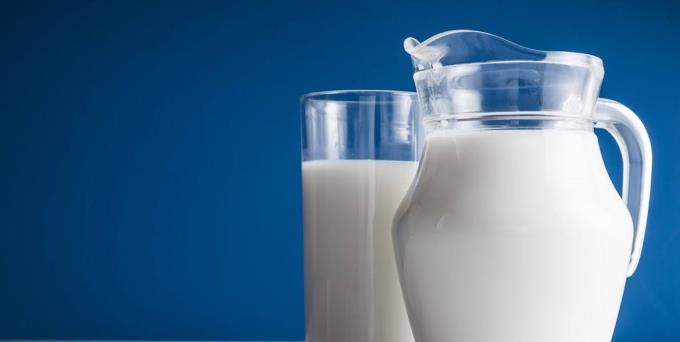Ways to determine an infants caloric needs

Learn how to determine your baby’s caloric needs, including the calories in breast milk and formula, to ensure your infant gets the right nutrition for healthy growth.
What should nursing mothers eat is the question of breastfeeding mothers to maintain a good source of milk and ensure their own health? Did you know that a healthy diet is really necessary to improve postpartum health as well as improve the quality of your milk supply?
Breastfeeding mothers need a lot of energy and good health. There are many kinds of nutritious foods for moms, but the most important thing is to get enough protein, iron, calcium and omega-3. The following article will show mothers the basic foods that need to be supplemented for the body.
With the exception of vitamin D, breast milk contains all the nutrients your baby needs for full growth during the first six months of life ( 1 ).
The composition of breast milk is generally in the highest degree, and your diet has only a limited effect on the concentration of certain nutrients ( 2 , 3 , 4 , 5 , 6 ).
However, if your overall diet doesn't have the right amount of nutrients to supply your body, it can affect both the quality of your breast milk and your own health ( 7 ).
Typically, 28 ml of breast milk contains about 19-23 calories, with 3.6% - 4.8% from protein, 28.8% - 32.4% from fat and 26.8% - 31.2% from carbohydrates, mainly from sugar and milk.

Protein helps provide, replenish and maintain body tissues, especially while you are breastfeeding. Breastfeeding mothers need more protein than non-breastfeeding women and the amount of protein needed is about 71g per day.
Lean meats, poultry, pork, fish, eggs, dairy products, nuts and beans provide the most protein for your diet. In addition, dairy products in addition to providing protein also help meet your growing calcium needs.
In addition to meats, eggs, mothers should add fatty fish such as salmon, tuna and mackerel to the daily diet. These fish are rich sources of DHA (docosahexaenoic acid). This is an omega-3 fatty acid found in breast milk that contributes to the growth and development of infants' eyes and brain.
Breastfeeding mothers should note that peanuts are one of the foods capable of causing allergic reactions in children and adults. Therefore, mothers should pay attention to monitoring the baby's reaction when she eats foods containing peanuts, especially if you have a family history of allergies.
If you are a vegetarian, you need to check if there is a lack of vitamin B12 in your daily diet , as this is a micronutrient that is only abundant in meat. Vitamin B12 deficiency can cause weakness, loss of appetite, vomiting or slow growth in children. You should consult your doctor about vitamin B12 supplements.
You need energy to be healthy to care for your baby and to maintain enough milk to breastfeed. Carbohydrates give you the fastest source of energy.
However, mothers should not load a lot of simple sugars into the body, because it will raise blood sugar quickly, but they can also drop quickly. The drop in blood sugar can make you feel tired or depressed.
Instead, mothers should choose foods containing complex carbohydrates such as potatoes, beans, corn, cereals and cereal products ...
They will absorb slowly and stabilize your blood sugar, providing you with energy without the extra calories found in simple sugars. You can get 9-11 servings of whole grains in your daily diet.

Vegetables also contain healthy carbohydrates that help fuel the mother's body after birth. Vitamins and minerals are essential for the health of mothers and babies. Fruits and vegetables also provide fiber, which helps prevent constipation , a common problem soon after birth, especially if you have a caesarean section and are on pain relievers. Remember to wash fruits and vegetables to get rid of pesticide residues.
You and your baby need to include dietary fats, but be selective about healthy fats. Omega-3 fatty acids in fish help children develop brain and eyes. Breastfeeding mothers should not eat more than 2 servings of fish per week due to the risk of mercury toxicity. Canned tuna, catfish, pollock and salmon are low in mercury.
You need to avoid sharks, mackerel, peach and swordfish. If you don't eat fish, flaxseeds also provide omega-3 fatty acids. But the fatty acids contained in flaxseeds are not easily converted to eicosapentaenoic and docosahexaenoic acids, the two essential types of omega-3 fatty acids found in fish.
Use olive oil or vegetable oil instead of saturated fat like fat, palm oil, butter or coconut oil for cooking. These oils contain unsaturated fats that lower your cholesterol levels rather than increase them.
Six tablespoons of oil a day will fulfill your needs, but nowadays a lot of processed foods have a certain amount of oil in them so you need to consider this.

Calcium is one of the most important minerals in the diet. To meet the calcium needs to develop the baby's bones, breast milk must also contain many of these substances. Studies show that women lose 3–5% of their calcium in their bones while breastfeeding. After breastfeeding is complete, your body must replenish the calcium it has consumed.
The recommended amount of calcium is 1,000 mg per day for all women aged 18 to 50 and 1,300 mg per day for adolescent mothers. Adequate calcium intake helps ensure that your bones will stay healthy after weaning. Consuming 3 glasses of milk a day will help you ensure the amount of calcium you need.
If you don't like milk, you can choose cheese or yogurt. In case of a dairy allergy, use calcium-fortified juices, tofu, dark green leafy vegetables like spinach and kale, broccoli, beans or a supplement like cereals. breakfast cup.
If you don't know how to get enough calcium in your diet, consult your doctor about supplementing with it. Getting enough calcium in your daily diet is not only beneficial during breastfeeding but also menopause and will also reduce your risk of osteoporosis later in life.
Vitamin D, which can be synthesized from sunlight, is as important as calcium in maintaining bone strength. Vitamin D is essential for the absorption of calcium in the diet. Depending on the individual needs, the body needs to provide the necessary amount of vitamin D. Most experts recommend a daily intake of at least 400 IU of vitamin D.
Sunlight exposure is one of the best ways for the body to absorb vitamin D. However, it is not the safest way due to the risk of skin cancer. Instead, you can supplement with foods like salmon, mackerel or orange juice, yogurt, breakfast cereals, or supplements.
Remember that your baby also needs vitamin D supplements because breast milk does not provide the necessary amount of vitamin D. Exclusively breastfed babies can develop rickets due to vitamin D deficiency.
Iron is an important ingredient in blood formation. Good sources of iron include: meat, green vegetables, fish, and whole grains. You should also pay attention to how to combine foods so that your body can absorb the maximum amount of iron in food.
Animal iron is generally better absorbed than iron from plant sources. Green tea can interfere with iron absorption, so you should avoid drinking tea after meals and instead have a glass of orange juice rich in vitamin C.
Breastfeeding mothers as well as all women of childbearing age should get at least 400mg of folic acid per day to prevent birth defects and ensure normal development of the baby.
Durian and leafy green vegetables, orange juice, legumes, liver, meat or poultry are excellent sources of folic acid. All women during their childbearing years are encouraged to take a daily supplement of 400mg of folate.
You need to know what a nursing mother should eat to have a nutritious milk source for your baby. If you cannot provide all the necessary nutrients from the daily diet, see an expert to advise on how to use supplementary tablets to ensure optimal health for mothers and babies.
At the same time, breastfeeding mom has many unexpected benefits that you are not aware of such as preventing certain diseases for your baby.
Also, if you need to know how to breastfeed easily and properly, please check here.
aFamilyToday Health does not offer medical advice, diagnosis or treatment.
Learn how to determine your baby’s caloric needs, including the calories in breast milk and formula, to ensure your infant gets the right nutrition for healthy growth.
Discover the top 5 smartest dog breeds in the world, including Border Collie, Poodle, German Shepherd, Golden Retriever, and Doberman Pinscher. Learn about their unique traits and why they are considered the most intelligent dogs.
Discover 7 nutritious and delicious ways to cook egg porridge for babies, including recipes with cheese, pumpkin, tomato, and more. Learn how to prepare baby-friendly egg porridge with our expert tips.
After a series of medical measures they obtained a complete human vascular system profile.
Watermelon is one of the fruits that many people love, not only cheap but also delicious, nutritious and refreshing in the summer. To get delicious watermelon pieces, show off your housewives, your artistic talents to cut beautiful pieces of watermelon.
aFamilyToday Health - The digestive system and body in each baby is different. Parents need to recognize notes to deal with when babies have a food allergy!
Babies need many factors for perfect development. aFamilyToday Health shares with parents things to keep in mind when babies are 8 weeks old so that parents can take care of their babies the best!
Babies need many factors for perfect development. aFamilyToday Health shares with parents things to keep in mind when babies are 18 weeks so that parents can take care of their babies the best!
Babies need many factors for perfect development. aFamilyToday Health shares with parents things to keep in mind when babies are 28 weeks old so that parents can take care of their babies the best!
Babies need many factors for perfect development. aFamilyToday Health shares with parents things to keep in mind when babies are 32 weeks old so that parents can take care of their babies the best!








